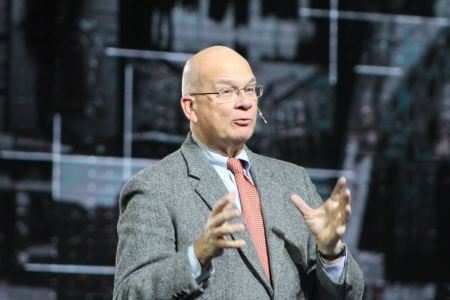Evangelical Leaders Identify 'Poorly Formed Christians' Among Top 5 Challenges Facing Church

Tim Keller, along with the leadership of the Gospel Coalition, listed five main challenges and five main opportunities facing the Christian church in 2018. Among the challenges are "poorly formed Christians."
"As we look back on 2017 and look forward to 2018, many evangelicals are confused and concerned, worried about trends in the broader culture and also within their churches," wrote the Gospel Coalition's leaders in an article Wednesday.
The leaders include Vice President Keller, who earlier this year stepped away from full-time preaching at Redeemer Presbyterian Church in New York City; President Don Carson, Board Chairman Kevin DeYoung, and Executive Director Ben Peays.
"They see a deepening secularism, threats to religious liberty, and growing cultural hostility to biblical Christianity. But some see the threats from within the church as even more worrisome," they stated.
"Sin" was the first main challenge listed, with Carson noting that its effects are "wide-ranging."
"One of the particularly insidious idolatries of our age, at least in Western culture, is our obsession with personal autonomy. We make sacred the right 'to choose my own identity, my own morality, my own truth, with no major responsibility other than to be true to myself,'" he explained.
"Small wonder this manifests itself in greed, sexual predation, moral confusion, and a tragically ignorant philosophical materialism."
Second, the Christian leaders warned against divisions in the church when it comes to polarizing issues, ranging from guns and marriage to NFL players protesting racial discrimination by kneeling during the anthem.
"It can feel as if we are more divided than we have been in a long time — divided by race, by politics, and by our approach to a changing culture," DeYoung said.
"The fractures run so deep that we aren't even sure if 'evangelical' is a word many people want to use any more."
The evangelical "identity crisis" was listed at No. 3.
The Gospel Coalition leaders noted that throughout the year it was questioned whether "evangelical" means a political voting bloc, or a theological coalition.
As Keller wrote recently in the New Yorker, "In many parts of the country, Evangelicalism serves as the civil or folk religion accepted by default as part of one's social and political identity. So, in many cases, it means that the political is more defining than theological beliefs, which has not been the case historically."
Some prominent Christian ethicists and pastors have even wondered whether the "evangelical" label is worth keeping at all, given the debates and division surrounding it.
Russell Moore, president of the Ethics & Religious Liberty Commission of the Southern Baptist Convention, said in August that he is not sure if he would identify as an evangelical.
"It depends on who's asking me the question. What I want to know is what does someone mean when he or she says 'evangelical?' The same way I've had people say 'are you a fundamentalist' before," Moore explained at the time.
"Sometimes people have a really skewed sort of the idea of what an evangelical is. You have to identify what a Christian is, define what the Gospel is, define what an evangelical is."
The Gospel Coalition leaders said in their article that "poorly formed Christians" is another major obstacle for the church.
"Largely cut off from history, biblically illiterate, and catechized more by cable news than by the creeds, today's evangelical Christians are naturally being shaped more by the ideological zeitgeist than by theological orthodoxy," they warned.
Lastly, Keller warned against the extremes of pietism, which he defined as "completely inward" Christianity oriented toward "Jesus just wants you to be happy" prosperity, and partisanship, which "errs by politicizing Christianity according to rigid partisan categories."
The author wrote that such partisanship wrongly declares that "you cannot be a true Christian conservative or progressive unless you tow the party line on every issue."
"This partisanship tends to shoehorn Scripture and Christian practice into one or the other political boxes," Keller added.
The five opportunities, which can be read in full on the Gospel Coalition website, include evangelism; unity and fellowship; biblical literacy; training and formation; and speaking prophetically with the Gospel at the center.





















